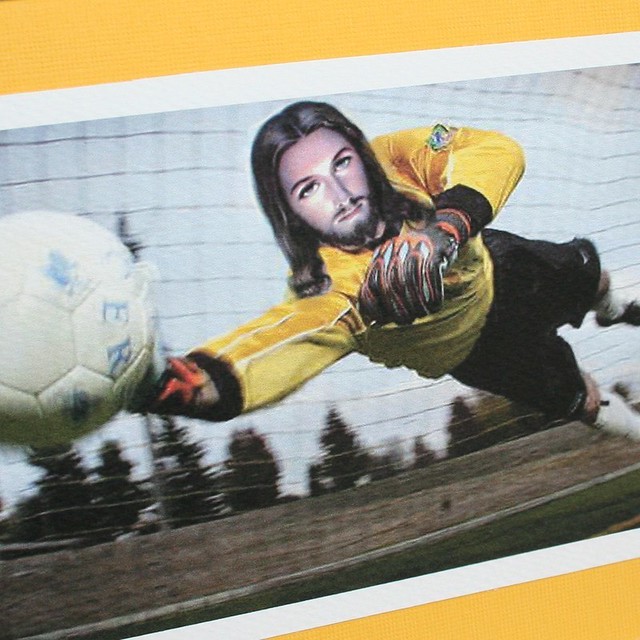Salvation's Default Setting
Default settings influence behavior. According to Behavioraleconomics.com
Requiring people to opt out if they do not wish to donate their organs, for example, has been associated with higher donation rates (Johnson & Goldstein, 2003). Similarly, making contributions to retirement savings accounts has become automatic in some countries, such as the United Kingdom and the United States.
These default settings are more than just organ donation and retirement accounts. Default settings impact our understanding of salvation.
What do you think is salvation's default?
Some of us hold that all of humanity is defaulted to hell or separation from God. The way to change the setting from the default (hell) to a different option (heaven) is by accepting Jesus as Lord and be baptized. The rest of life is working to ensure that the change in the salvation setting sticks and does not return to the default setting. There is a concern that living an unchecked life our salvation setting will return to the default.
Some of us hold that all of humanity is defaulted to heaven or union with God. There is nothing that can separate us from the love of God. There are times when the consequences of our actions change the setting, but God is quick to change the setting back to salvation. The rest of life is living out of thanksgiving for the Good News of God’s saving grace and love.
Salvation’s default setting does not mean that is what salvation will be: not unlike defaulting into being an organ donor means you will be an organ donor. Things change. We live with the consequences of our actions and no one knows for certain what is to come.
Perhaps our approach to “the other” is dependent upon how we see salvation’s default setting? Perhaps our approach to our own lives is dependent upon how we see salvation’s default setting?
And so, what is salvation’s default setting?
The Lack Of Unity Is A Feature Not A Bug
Photo by Jachan DeVol on Unsplash
What if the lack of unity is a feature not a bug?
The more I immerse myself in scripture, the more I come to see that the Church of Jesus Christ has always had a lack of unity. Read Corinthians or Romans. Perhaps the Jerusalem Council in Acts or the obvious lack of unity between Jesus and Judas or Jesus and Peter. The Church has always had a lack of unity.
But why would a lack of unity be a feature and not a bug? Perhaps it is because the lack of unity in the Church means that the Church is bound together by something deeper than beliefs, doctrine, interpretation or anything else.
Imagine we were to create a Church that does have a lack of unity. Imagine a Church that has all the answers, that has all the questions properly ordered and the interpretations unquestionably clear. This Church would be unified on all matters and all thoughts. This Church would not need a savior.
Paradoxically, what holds the Church together is our collective lack.
The Church of Jesus Christ has a lack of unity because it has a unity in lack.
The thing that binds the Church together is the reality that we all have a lack. We all have fallen short, we have missed the mark. We lack the ability to save ourselves. We lack the knowledge of how to get out of the messes we make. We lack the foresight and the insight to see how far reaching our sin and mistakes are. The Church has gathered for two thousand years to declare, “We lack salvation, we repent, forgive us and heal us, O God!”
The lack of unity in the UMC is not a problem, it reminds me that we are always and all in need of the savior we call Christ. The Good News is tied up in the reality that the Church is a unity of lack.
Why I don't say "I was saved"
In some Christian circles it is commonplace to be able to share the time, place or date of when you "were saved". Some Christians, like myself, don't have a moment in time that I can point to and say, "this is the moment". But that is not the reason I do not say "I was saved". Mine is more theological rather than biographical.
I believe that salvation has little to do with what I do, say or feel. If there was a time that I "was saved" it was in the life, death and resurrection of Jesus. I do not say "I was saved" in some moment in my life because God's action of reconciling all things predates my existence and actions.
It may also be worth noting that what we are saved "from" is a large topic of discussion. And, as far as I can see, there is no one thing that everyone needs to be saved from. There are a lot of things. While some need to be saved from our pride, others need to be saved from our self hate. Some of us need to be saved from starvation and others of us need to be saved from slavery. To say all this is "Sin" may be generally accurate it also removes the specific need. God so loved the whole world and in this love God saved the world.
The good news is we are saved and we did not do anything to earn it. Now, we get to live in thanksgiving, humility, gratitude and grace. And we have faith that living with the posture of thanksgiving, humility gratitude and grace leads to life eternal.

Be the change by Jason Valendy is licensed under a Creative Commons Attribution-NonCommercial-ShareAlike 3.0 Unported License.




